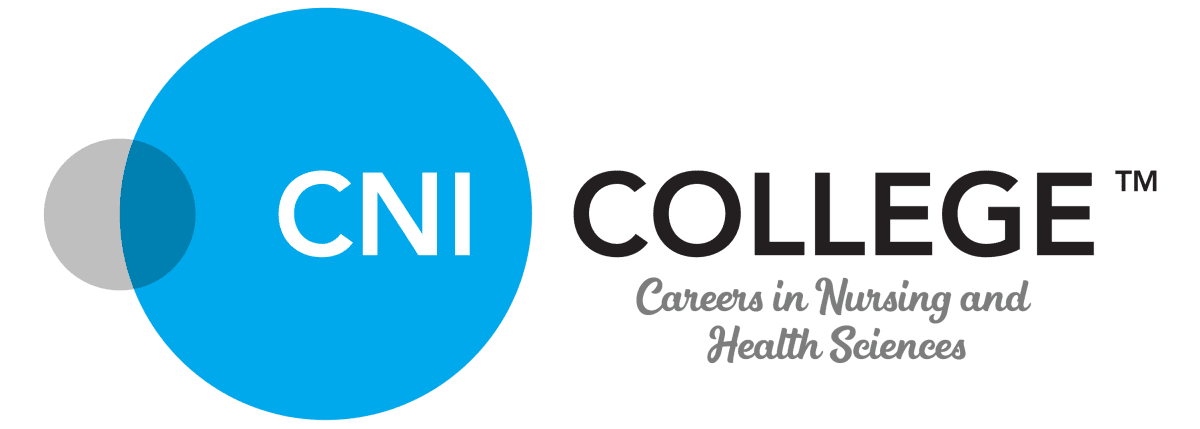Embarking on a nursing career is a journey filled with opportunities for personal and professional growth. Nursing, as a profession, is one of the most critical components of the healthcare industry, dedicated to the care and well-being of individuals, families, and communities. Nurses play a vital role in patient care, offering support, comfort, and critical healthcare services across a variety of settings. From hospitals and long-term care facilities to clinics and community health organizations, nurses are on the front lines of healthcare, making a significant impact on patients’ lives every day. Their commitment to health promotion, disease prevention, and the care of ill, disabled, and dying people is fundamental to the health and well-being of society.
Vocational nursing, specifically, serves as an essential entry point into the nursing profession. Focused on providing practical, hands-on patient care, vocational nursing programs prepare individuals to become Licensed Practical Nurses (LPNs), who play a pivotal role in the healthcare delivery system. These programs offer a blend of theoretical knowledge and clinical practice, enabling graduates to provide high-quality nursing care in various settings. Vocational nurses are crucial in bridging the gap in the healthcare workforce, offering vital services that support both patients and registered nurses (RNs) in a wide array of healthcare environments. By focusing on fundamental nursing skills and patient care techniques, vocational nursing contributes significantly to the efficiency and effectiveness of healthcare services, making it an invaluable pathway for those aspiring to make a difference in the healthcare industry.
What is a Vocational Nursing Program?
A vocational nursing program is an educational pathway designed to prepare students for a career as Licensed Practical Nurses (LPNs), offering a focused curriculum that combines theoretical knowledge with practical nursing skills. Typically shorter in duration than other nursing education paths, these programs aim to equip students with the essential competencies needed to provide basic nursing care in a variety of healthcare settings. The core curriculum includes subjects such as anatomy and physiology, pharmacology, nutrition, and patient care across the lifespan, along with supervised clinical experiences that allow students to apply their learning in real-world healthcare environments. Vocational nursing programs are tailored to meet the regulatory requirements for LPNs, ensuring that graduates are eligible to sit for the National Council Licensure Examination for Practical Nurses (NCLEX-PN).

Distinguishing itself from other nursing education paths, such as those leading to Registered Nurse (RN) licensure, a vocational nursing program offers a more direct and expedited route into the nursing field. While RN programs, including Associate Degree in Nursing (ADN) and Bachelor of Science in Nursing (BSN) programs, require two to four years of study and provide a broader and more in-depth exploration of nursing and healthcare topics, vocational nursing programs focus on the foundational skills necessary for entry-level nursing roles. This makes vocational nursing an attractive option for individuals seeking to begin their nursing careers within a shorter timeframe, providing a vital stepping stone to immediate employment and offering opportunities for further education and career advancement in the future.
Goals of a Vocational Nursing Program
The goals of vocational nursing programs are multifaceted, focusing on preparing students for the demands of entry-level nursing positions, equipping them with a solid foundation of practical skills and theoretical knowledge, and instilling the importance of compassionate patient care. These objectives ensure that graduates are not only competent in their technical abilities but also understand the value of empathy and respect in patient interactions. Below are the key goals of vocational nursing programs.
Preparing Students for Entry-Level Nursing Positions
Vocational nursing programs are designed to ready students for the realities of working as Licensed Practical Nurses (LPNs). This preparation involves understanding the scope of practice for LPNs, learning to work effectively within healthcare teams, and navigating the healthcare environment confidently. Graduates are expected to seamlessly transition into roles that require direct patient care, support of family members, and collaboration with registered nurses and physicians.
Equipping Students with Practical Skills and Theoretical Knowledge
Essential to the vocational nursing curriculum are both the hands-on skills and the theoretical understanding needed to provide effective patient care. These include:
- Clinical Skills: Administering medications, wound care, taking vital signs, and assisting with daily living activities.
- Communication Skills: Effective communication with patients, families, and healthcare team members.
- Critical Thinking and Problem-Solving: Assessing patient needs, planning and implementing care, and evaluating outcomes.
- Ethical and Legal Knowledge: Understanding patient rights, confidentiality issues, and legal responsibilities as an LPN.
Emphasizing the Importance of Compassionate Patient Care

Beyond the technical aspects of nursing, vocational nursing programs place a significant emphasis on the development of empathy, cultural sensitivity, and a patient-centered approach to care. Students learn the importance of treating patients with dignity, respect, and understanding, recognizing that emotional support is a critical component of the healing process.
By achieving these goals, vocational nursing programs ensure that graduates are well-prepared to make meaningful contributions to the healthcare teams they join, delivering high-quality care that addresses both the physical and emotional needs of patients.
What to Expect in a Vocational Nursing Program
Entering a vocational nursing (VN) program, students can expect a comprehensive curriculum designed to cover the core subjects necessary for a successful nursing career. This curriculum encompasses a broad range of topics, including anatomy and physiology, nursing fundamentals, pharmacology, pediatrics, maternity nursing, and gerontology, among others.
Alongside theoretical coursework, vocational nursing programs heavily emphasize practical skills through lab work and simulations. These practical components are integral, teaching students how to perform essential nursing tasks such as administering medications, conducting patient assessments, providing wound care, and implementing infection control measures. Clinical experiences in real healthcare settings, such as hospitals, clinics, and long-term care facilities, allow students to apply their knowledge and skills directly, under the supervision of experienced nurses. This hands-on practice is crucial for developing competence and confidence in patient care.
The balance between classroom learning and hands-on practice in VN programs is carefully structured to ensure that students are not only knowledgeable but also skilled in practical nursing. Typically, the program begins with more intensive classroom-based learning to establish a strong theoretical foundation. As the program progresses, there’s a gradual increase in the amount of hands-on clinical experience, allowing students to apply what they’ve learned in real-world settings.
The duration and intensity of VN programs can vary, but most are designed to be completed within one to two years, depending on whether the student is attending full-time or part-time. This makes for a rigorous and demanding schedule, as programs aim to prepare students for the fast-paced environment of healthcare. The blend of classroom instruction, practical training, and clinical rotations ensures that graduates are well-prepared for the challenges and rewards of a career in nursing, ready to enter the workforce as competent, entry-level nurses.
Life After the Program: Obtaining Your License
Upon successful completion of a vocational nursing program, graduates embark on the path to licensure as Licensed Practical Nurses (LPNs), a critical step in beginning their nursing careers. The journey to licensure involves several key steps, beginning with applying to take the National Council Licensure Examination for Practical Nurses (NCLEX-PN). This standardized exam, administered by the National Council of State Boards of Nursing (NCSBN), assesses the candidate’s readiness to practice nursing at an entry-level. Graduates must first submit an application for licensure to the nursing regulatory body (NRB) in the state where they intend to practice. This process typically requires submitting official transcripts from the vocational nursing program, along with any other required documentation, and paying applicable fees.
The licensure process also includes a background check and, in some cases, fingerprinting, to ensure the safety and integrity of the nursing profession. Once the application is approved, candidates receive authorization to test (ATT), allowing them to schedule their NCLEX-PN examination. The exam itself is computer-adaptive, testing knowledge, skills, and abilities essential for safe and effective entry-level nursing practice. Passing the NCLEX-PN is the final hurdle to obtaining licensure. After passing, candidates are officially granted the title of LPN, making them eligible to practice nursing in their state. It’s important for new graduates to familiarize themselves with the specific requirements of their state’s NRB, as procedures and requirements can vary. Successfully navigating the licensure process is a significant achievement, marking the transition from student to professional nurse.
Understanding the NCLEX-PN Exam
The National Council Licensure Examination for Practical Nurses (NCLEX-PN) is a pivotal component in the journey to becoming a Licensed Practical Nurse (LPN). Administered by the National Council of State Boards of Nursing (NCSBN), the NCLEX-PN is designed to assess a candidate’s competence to practice nursing at an entry-level. This comprehensive examination covers a wide range of topics, including safe and effective care environments, health promotion and maintenance, psychosocial integrity, and physiological integrity. The NCLEX-PN utilizes a computer-adaptive testing format, meaning the difficulty of questions adjusts based on the test taker’s ability, ensuring a precise measure of their knowledge and skills.

Tips for Preparing for the Exam
Preparing for the NCLEX-PN is crucial for success, and there are several strategies that can help candidates feel ready and confident on exam day:
- Review Core Nursing Content: Focus on the foundational subjects covered in your vocational nursing program, including pharmacology, medical-surgical nursing, pediatrics, and maternity nursing.
- Practice with NCLEX-Style Questions: Familiarize yourself with the format and types of questions on the NCLEX-PN by using practice tests and question banks.
- Develop a Study Plan: Create a structured study schedule that allocates time for different subjects, allowing for regular breaks to avoid burnout.
- Utilize NCLEX Prep Resources: Take advantage of study guides, online courses, and review classes specifically designed for NCLEX preparation.
- Understand the Test Format: Learn about the computer-adaptive testing format of the NCLEX-PN, including how questions are selected based on your responses.
- Focus on Test-Taking Strategies: Learn strategies for answering multiple-choice questions, such as eliminating incorrect answers and making educated guesses.
- Stay Healthy: Ensure you’re getting enough rest, eating well, and managing stress in the days leading up to the exam.
The importance of the NCLEX-PN in becoming an LPN cannot be overstated. Passing this exam is a requirement for obtaining licensure in all states and jurisdictions in the United States. It serves as a standardized measure of a nurse’s ability to provide safe and effective care, ensuring that only qualified individuals enter the profession. Achieving a passing score on the NCLEX-PN is the culmination of years of hard work and study, granting the privilege to practice as an LPN and make a meaningful impact in the lives of patients.
Embarking on Your Nursing Career
Finding your first job as a Licensed Practical Nurse (LPN) marks the exciting beginning of a career in nursing. The healthcare industry offers a variety of settings where LPNs are in high demand, including hospitals, long-term care facilities, outpatient clinics, and home health care. To increase your chances of landing a position, it’s essential to leverage both the network you’ve built during your clinical rotations and the career services that many vocational nursing programs offer. Crafting a compelling resume that highlights your clinical experience, skills, and any specialties, along with a personalized cover letter, can make a significant difference. Additionally, engaging in professional nursing organizations and attending job fairs are excellent ways to connect with potential employers. Remember, flexibility in location and shift preference can also open more opportunities for your first nursing role.
The journey of a nurse doesn’t end with landing the first job; it continues with lifelong learning and career advancement. Continuing education is a cornerstone of nursing, with many LPNs choosing to further their education through bridge programs, such as LPN-to-RN or LPN-to-BSN, which open the door to becoming a Registered Nurse (RN). These programs not only expand your knowledge and skills but also increase your career opportunities, salary potential, and scope of practice. Additionally, certifications in specialized areas of nursing can enhance your expertise and marketability.

